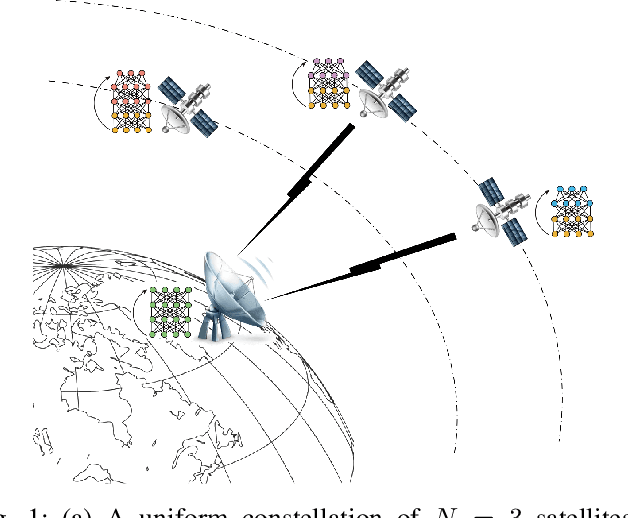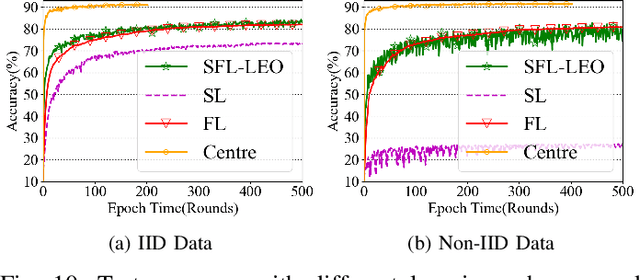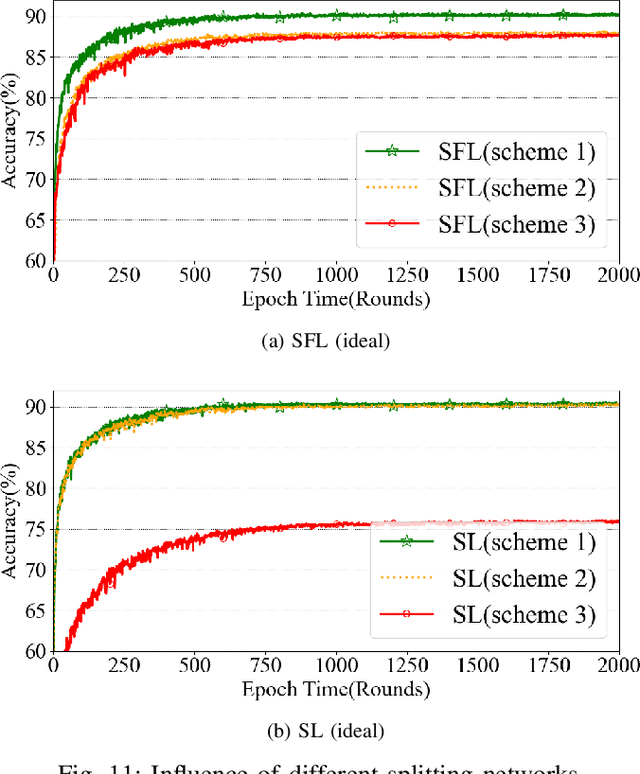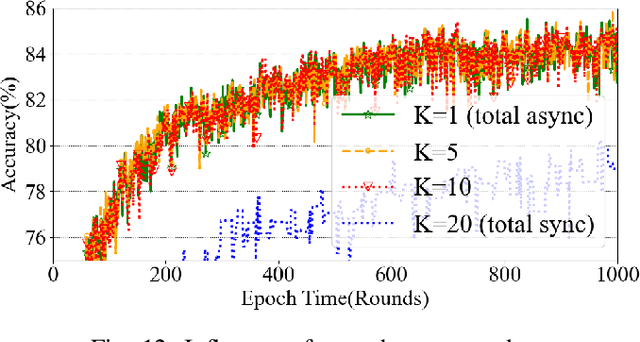Jiasheng Wu
SFL-LEO: Asynchronous Split-Federated Learning Design for LEO Satellite-Ground Network Framework
Apr 18, 2025



Abstract:Recently, the rapid development of LEO satellite networks spurs another widespread concern-data processing at satellites. However, achieving efficient computation at LEO satellites in highly dynamic satellite networks is challenging and remains an open problem when considering the constrained computation capability of LEO satellites. For the first time, we propose a novel distributed learning framework named SFL-LEO by combining Federated Learning (FL) with Split Learning (SL) to accommodate the high dynamics of LEO satellite networks and the constrained computation capability of LEO satellites by leveraging the periodical orbit traveling feature. The proposed scheme allows training locally by introducing an asynchronous training strategy, i.e., achieving local update when LEO satellites disconnect with the ground station, to provide much more training space and thus increase the training performance. Meanwhile, it aggregates client-side sub-models at the ground station and then distributes them to LEO satellites by borrowing the idea from the federated learning scheme. Experiment results driven by satellite-ground bandwidth measured in Starlink demonstrate that SFL-LEO provides a similar accuracy performance with the conventional SL scheme because it can perform local training even within the disconnection duration.
Deep Reinforcement Learning Based Resource Allocation for Cloud Native Wireless Network
May 10, 2023Abstract:Cloud native technology has revolutionized 5G beyond and 6G communication networks, offering unprecedented levels of operational automation, flexibility, and adaptability. However, the vast array of cloud native services and applications presents a new challenge in resource allocation for dynamic cloud computing environments. To tackle this challenge, we investigate a cloud native wireless architecture that employs container-based virtualization to enable flexible service deployment. We then study two representative use cases: network slicing and Multi-Access Edge Computing. To optimize resource allocation in these scenarios, we leverage deep reinforcement learning techniques and introduce two model-free algorithms capable of monitoring the network state and dynamically training allocation policies. We validate the effectiveness of our algorithms in a testbed developed using Free5gc. Our findings demonstrate significant improvements in network efficiency, underscoring the potential of our proposed techniques in unlocking the full potential of cloud native wireless networks.
 Add to Chrome
Add to Chrome Add to Firefox
Add to Firefox Add to Edge
Add to Edge